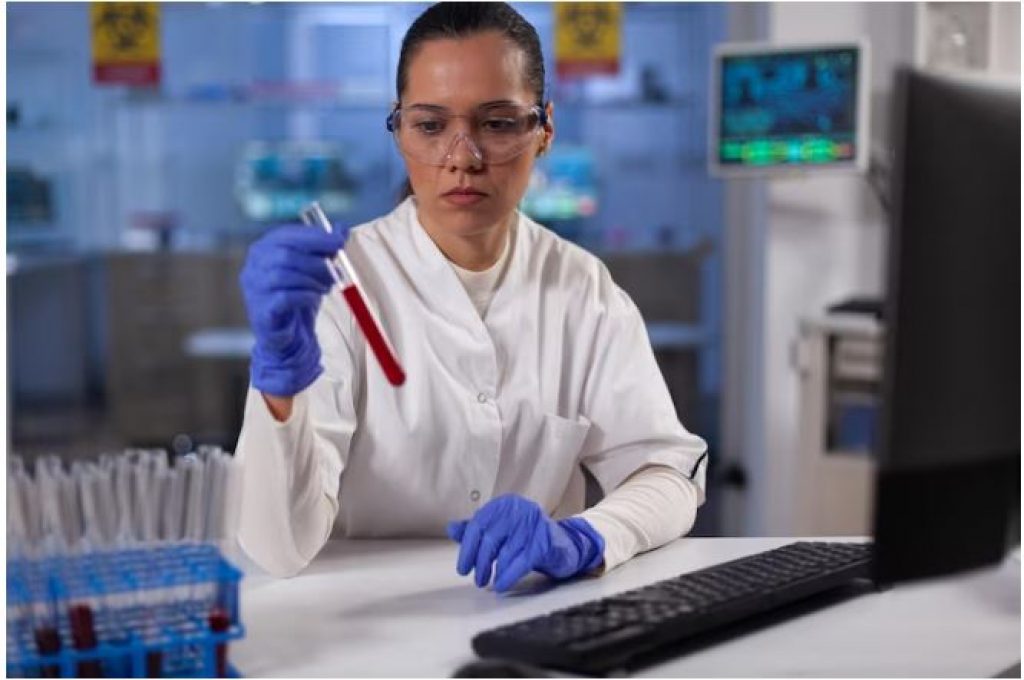
How to Become a Forensic Nurse?
Learn how to become a forensic nurse and combine your passion for nursing with your interest in criminal justice. Discover the education requirements, job duties, and salary expectations for this exciting and fulfilling career path. Start your journey today.
What Is a Forensic Nurse?
Forensic nurses offer medical care and support for individuals who have experienced abuse or assault. They help the police by conducting thorough physical examinations and gathering evidence. They also make sure the patient is taken care of on a mental and emotional level. Being a forensic nurse is a great first step if you’re interested in nursing and want to help bring about social justice.
Along with medical examiners, pathologists, or coroners, forensic nurses are responsible for carefully documenting legal and medical information to determine the cause of death. They might work at psychiatric institutions, rape crisis centers, morgues, police stations, and prisons. Forensic nurses can assist in times of crisis both nationally and locally.

If you want to make a difference in the world of crime, then forensic nursing is the perfect career for you! This exciting field demands a unique set of skills including sharp critical thinking, keen physical evaluation, a compassionate bedside manner, laser-like attention to detail, and top-notch communication skills.Familiarity with the law and judicial system is vital.
What Does a Forensic Nurse Do?
Forensic nurses do a wide variety of tasks, some of which may change depending on the setting in which they are employed. Nurses have dual roles as medical professionals and investigators in a forensic setting. Amidst the emotional and physical turmoil of being a victim of crime, novel dual role swoops in to provide unparalleled care and support.
It’s possible that sexual assault or battery survivors won’t confide in their caretakers or feel safe going to the police. Forensic nurses are the ultimate allies for victims, serving as a one-stop shop for care and support. With their expert care and compassionate demeanor, they eliminate the need for multiple exchanges, building trust and healing hearts one patient at a time.
Practitioners of forensic nursing at urgent care centers and emergency rooms may:
- Take a complete medical history of the patient.
- Evidence such as broken glass, blood, and gunshot casings should be gathered.
- Carry out bodily examinations.
- Take pictures of any injuries or proof.
- Take care of wounds.
- Talk to the affected person and their loved ones.
- Notify authorities and Child/Adult Protective Services if someone you know has been a victim of assault or abuse.
- Sample blood and tissue.
- Take pictures of wounds/injuries.
- Take pictures of Criminal Investigation.
- Accumulate proof.
- Help perform autopsies.
- Duty as a deputy coroner.
What are the Skills needed in forensic nursing?
A forensic nurses may find these abilities helpful in their line of work:
Compassion:
Forensic nurses’ ability to empathize with their patients is crucial because they often treat victims of violent crimes. Trust between patients and forensic nurses can be strengthened via acts of kindness.
Assistance to patients:
Evidence acquired from a victim’s body and the victim’s condition during the traumatic event may be discussed in court by a forensic nurse who testifies as a witness. In cases of abuse or trauma, they frequently speak up for the rights of their patients.
Verbal and written expression:
Forensic nurses may include documenting their findings in reports and forms detailing their patients’ conditions and the forensic evidence they uncover. They may work in tandem with doctors and cops, as well as patient’s loved ones and the legal system.
Gathering of Evidence:
An essential technical competence for a forensic nurse is collecting evidence from the victim that can be used in court. Forensic nurses must know the correct methods for collecting samples and maintaining DNA, bodily fluids, and other residues that can be used as evidence in legal proceedings.
Confidentiality:
Interacting with crime victims and gathering evidence comprise a significant portion of a forensic nurse’s duty. They must be able to use discretion and restrict the amount of information they share about their work, especially intimate facts about their patients, such as their health state, with those outside the case.
Careful consideration:
A forensic nurse’s keen eyesight is essential because she may have to detect and identify evidence on the victim’s body. This ability is handy when submitting their findings to police enforcement and a jury.
Where Do Forensic Nurses Work?
When it comes to patient care, forensic nurses have many options. The following hospital departments may hire forensic nurses:
- Accident & Emergency Departments.
- Emergency rooms help with cases of trauma (both deliberate and nonintentional), injuries, and assault/abuse.
- Investigators in the field of medicine.
- Pathology Labs.
- Municipal and County governments.
- Charities that aid victims of abuse and trauma.
How to become a forensic nurse?

Here are several possible routes to a career as a forensic nurse:
Get your Bachelor of Science in Nursing degree:
Beginning your career as a forensic nurse requires the completion of a BSN degree program that typically lasts four years. Earning a Bachelor of Science in Nursing will give you the foundation to become an expert nurse. BSN programs come in various formats, including some that can be completed quickly, those that take longer, and even those that can be completed online. Courses in law and forensic science are also available.
Get your Nurse Licensure Examination (NCLEX-RN) certification:
You can take the NCLEX-RN, given by the National Council Licensure Examination for Registered Nurses, after you earn your bachelor’s degree in nursing. After demonstrating competence on this exam, the National Council of State Boards of Nursing (NCSBN) will provide you with a license as a registered nurse, allowing you to begin your professional nursing career.
Safe and effective care environment, health promotion and management, psychological and physiological integrity, and risk management are the four domains tested on the NCLEX-RN.
Get a graduate degree in forensic nursing:
You can use this in place of or in addition to official forensic nursing credentials. A two-year master’s degree program offers the opportunity to acquire the specialized skills and practices required in forensic nursing. Some companies may more highly seek candidates who have earned a master’s degree and may be compensated more handsomely by others.
Become certified as a forensic nurse:
Two forensic nursing certifications, the Sexual Assault Nurse Examiner-Adult/Adolescent (SANE-A) and the Sexual Assault Nurse Examiner-Pediatric (SANE-P), attest to a sexual assault nurse examiner’s competence in caring for and collecting evidence from sexual assault victims of both ages. You’ll qualify for these qualifications after working as an RN for two years.
The IAFN also provides an advanced forensic nursing certification known as the AFN-BC. Only experienced forensic nurses should apply for this qualification. Candidates submit a portfolio demonstrating their professional expertise, which their peers evaluate. If you don’t have a master’s degree but want to improve your employment prospects, getting a certification in your field is smart. Gaining certification is a great way to demonstrate your competence in your field and boost your credibility with employers.
Academic Research:
There are many different settings you could work in as a forensic nurse. Forensic nurses frequently work in healthcare settings such as hospitals, psychiatric institutions, rehabilitation centers, correctional facilities, coroners’ offices, medical examiners’ labs, and anti-violence community centers. Before applying for a job, consider how you would handle each situation.
Look for work in forensic nursing:
The last thing you need to do to become a forensic nurse is to start applying for jobs in the field. Craft an impressive resume and cover letter highlighting your academic background, work accomplishments, and outstanding qualifications.
Include all the relevant terms from the job description in your resume to make a good impression. Include your contact details, especially your business email and phone number. Only send the same resume out to a few employers.
What education do forensic nurses need to continue their practice?
Contact your state board and professional organization for information on maintaining your RN license and certification. Renewal requirements for a nursing license, certification, or advanced practice certification differ from one state or credentialing body to the next.
An examination and a renewal fee are required to maintain a valid SANE-A and SANE-P certification. Reading the certification’s renewal manual for information on prerequisite courses or other requirements is essential.
What Kinds of Forensic Nursing Work Exist?
A forensic nurse can find work in a wide variety of settings. They are qualified to work both in conventional nursing capacities and non-clinical contexts, such as
Violence prevention initiatives:
Forensic nurses often serve as public speakers and activists, and some even dedicate their careers to reducing violence in their local communities. They frequently collaborate with charitable organizations that aid victims.
Institutions for incarceration:
Forensic nurses commonly support victims of violence and assist law enforcement agencies with forensic requirements in correctional facilities.
Clinic of medical examiners:
Forensic nurses are sometimes requested by coroners and medical examiners to aid in assessing deceased victims of crimes.
Communities:
Nurses with forensic training may be needed to treat victims after natural catastrophes. Forensic nurses may sometimes be deployed to disaster-stricken areas to offer their services.
Mental health facilities:
Forensic nurses work in hospitals and other medical settings to assist people with mental health issues who have been victims of crime or violence.
Hospitals:
Traditional hospitals need forensic nurses who can assist with cases involving crime, violence, human trafficking, and other sensitive issues. Nurses with forensic specialties are in high demand across all healthcare settings, from emergency rooms to maternity wards.
Institutions of higher learning:
Some nurses who have worked in forensics go on to teach at universities that offer forensic nursing degrees.
What is the Average salary for forensic nurses?
Forensic nurses can earn a median annual salary of $89,234. The pay of forensic nurses can range from $40,000 to $80,000 annually, based on factors such as their level of education, employer size, and geographic region. Advanced practice registered nurses (APRNs) typically receive higher salaries than registered nurses (RNs).
What Is the Career Outlook for Forensic Nurses?
According to the Bureau of Labor Statistics, employment in the nursing field is expected to increase by 6% between 2016 and 2031. Additionally, a nursing shortage is expected to worsen when baby boomer nurses reach retirement age and the generation’s increasing healthcare needs are met.
From 2011 to 2019, the population of adults aged 65 and up increased by 73%, from 41 million to 71 million. The demand for nurses is rising, and violent crime is always a problem in this country. Crime rates in the United States may go up and down, yet thousands of Americans are victims of violent crime every year.
Conclusion:
Becoming a forensic nurse is an excellent career choice for those interested in the fields of nursing and criminal justice. Forensic nurses are more in demand now than ever before, and as a result, salaries are on the rise. With proper education and certification, you can become a qualified forensic nurse and make a positive difference in your community.







